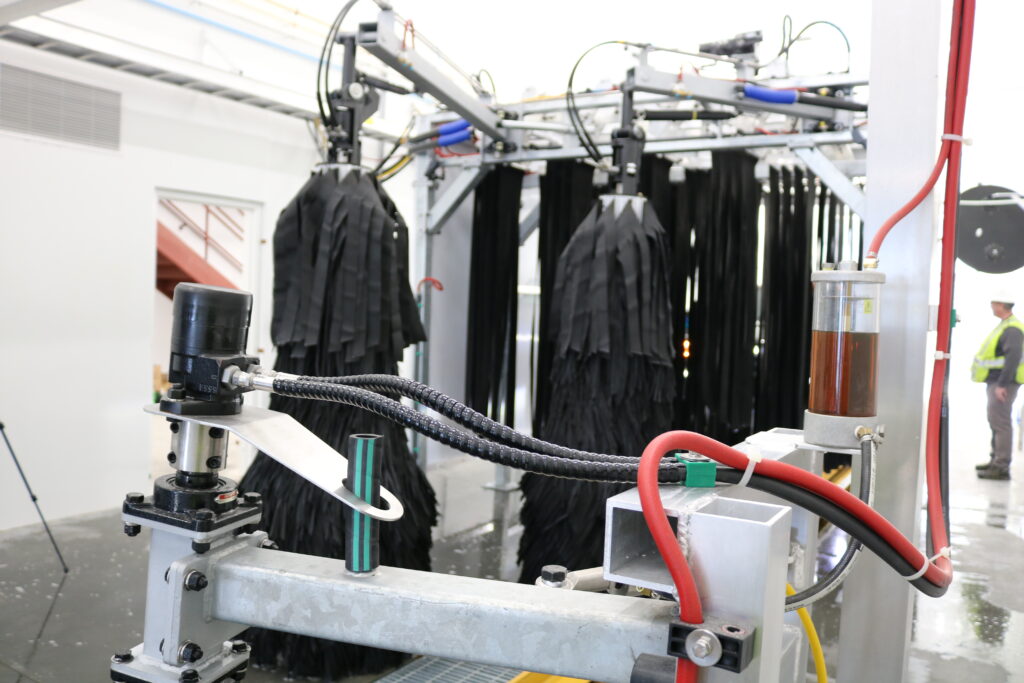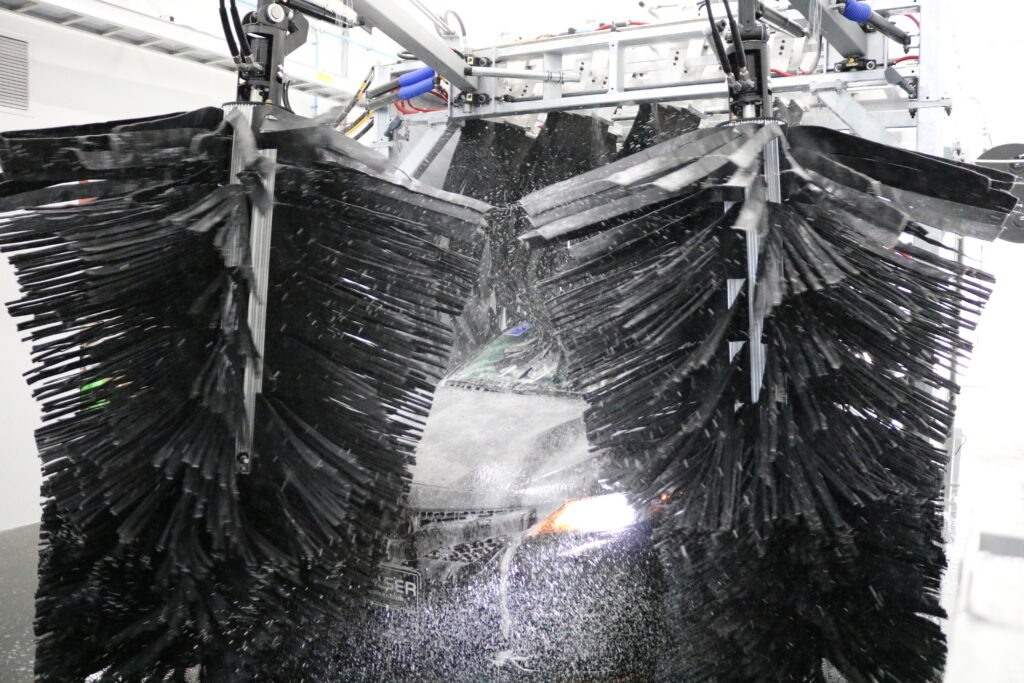Precision and Power: Why Hydraulic Systems Lead in Car Wash Technology
Manufacturers make choices every day in the design and specifics of the products they create. Each decision is driven by a set of factors aimed at producing the best possible product. However, it is worth questioning whether these choices serve the manufacturer’s interests or those of the customers. One significant choice for car washes is the choice between hydraulic and electric motor systems for car wash equipment.
Hydraulic motors, as used in Broadway Equipment car washes, offer distinct advantages, particularly for applications requiring high force with precise control. Unlike electric motors, which need to be sized for the maximum load they will encounter, hydraulic systems can be designed to meet average load requirements. This distinction allows hydraulic actuators to remain compact and efficient, making them ideal for intermittent motion cycles, like car wash cycles. Paired with our cloth or foam-covered arms, it creates a careful and delicate wash that applies enough power while not overexerting on cars.

The hydraulic advantage becomes most apparent when the duty cycle of the motion does not reach 100% capacity. In these scenarios, the accumulator in a hydraulic system stores energy, releasing it when needed, thus enhancing efficiency. Furthermore, a single hydraulic pump can power multiple actuators. This feature significantly reduces the weight on moving parts and makes hydraulic systems particularly suited for complex, multi-axis applications like those found in car wash systems.
Hydraulics also excel in maintaining constant pressure without the need for continuous energy input, a stark contrast to electric motors that may overheat under continual torque applications
When implementing hydraulic systems, it’s important to consider unique design aspects such as the sizing of actuator cylinders and the selection of hydraulic components that align with the desired speed and force of the application. Proper sizing is critical to ensure the system operates efficiently without energy waste, essential for optimizing performance and reducing operational costs.

These advantages drive Broadway Equipment’s commitment to hydraulic technology, especially in applications where precision, efficiency, and reliability are paramount. However, the choice between hydraulic and electric systems should be investigated, and a thorough understanding of each technology’s benefits and limitations, as well as the specific requirements of the car wash operation, should be analyzed.
Dealerships seeking to invest in or upgrade their car wash equipment should consider hydraulic motors for their robustness, efficiency, and suitability for high-load applications. Broadway Equipment remains dedicated to providing innovative solutions that leverage the strengths of hydraulic technology, ensuring dealerships have access to reliable, high-performance car wash equipment. There are many additional factors around this discussion, and Broadway would like the opportunity to remain the Dealer’s choice.
Still interested in learning more about hydraulics? Read more from Peter Nachtwey’s article, “Fluid Power vs. Electromechanical Power“.
